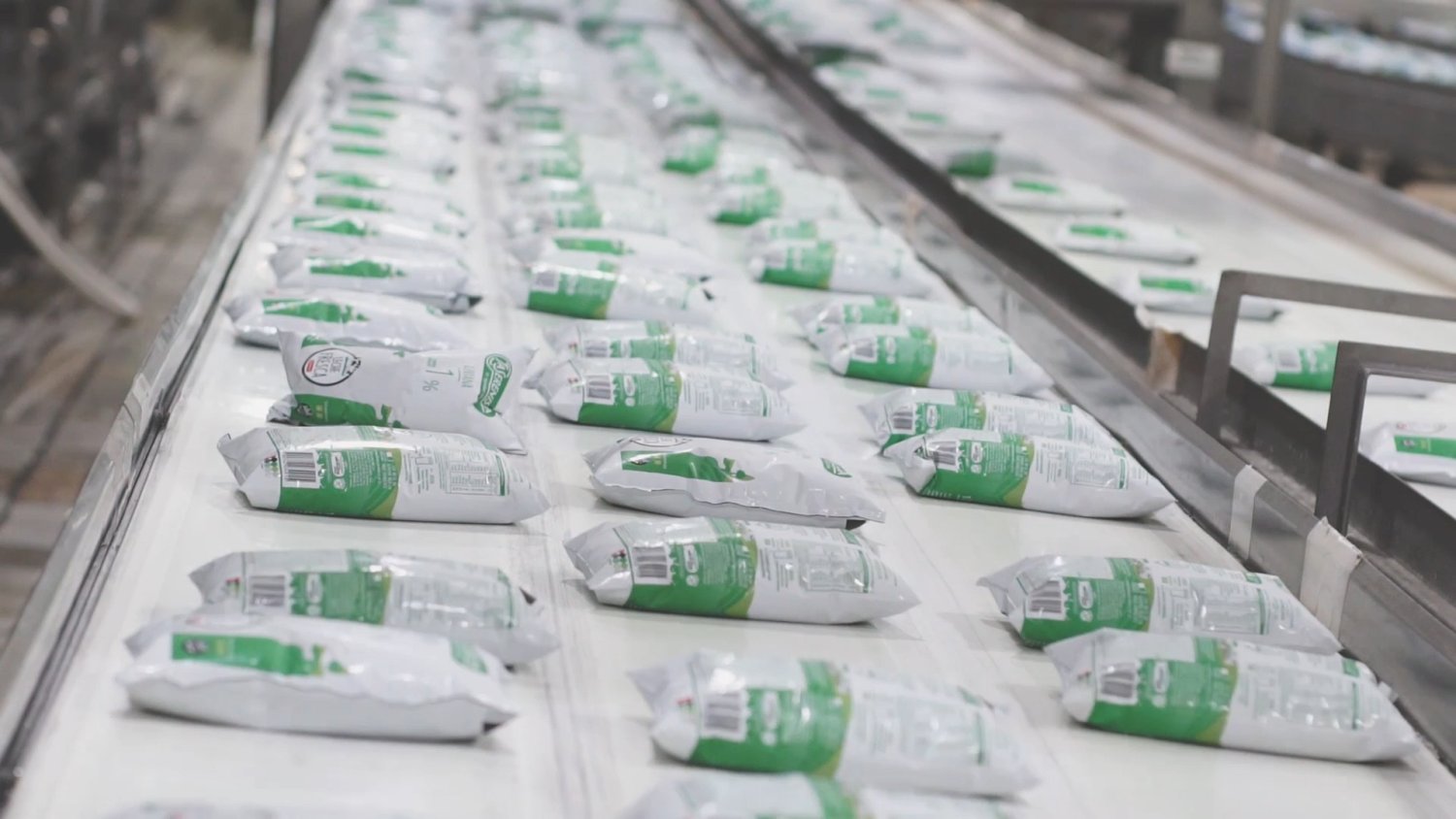
Last Friday, August 2, the firm Mastellone Hermanos SA presented its financial statements to the National Securities Commission (CNV) at the close of the period of June 30, 2024. The report shows a net profit of $56,096 million. A very significant increase since in 2023 the company had claimed a loss of $13,189 million. Discounting the payment of taxes, the total comprehensive profit was $29,960 million.
In the dairy production sector, La Serenísima, Sancor and Danone account for 75% of total sales. According to Indec, for June of this year, the milk and dairy products sector had an interannual increase of 293.7% for the GBA region, 20 percentage points above the general level of price increases, of 273.7% for the period June 23-24.
A report by Cepa indicates that in the first 5 months of the year, milk consumption fell by 19.5%, with May being the month with the largest drop, with a 30% drop. The consumption situation is alarming. While in Argentina an average consumption of 200 liters of milk per inhabitant per year is estimated, INTA indicates that this figure has dropped to 187 liters today. The Argentine Dairy Chain Observatory (OCLA) reported, however, that in 2023, 192.8 liters per inhabitant were consumed, but if the data for the first half of 2024 are projected, annualized consumption would be reduced to only 122 liters per inhabitant.
The CEPA publication highlights that “it is important to highlight the degree of concentration of the industrial segment of the chain, where the first 10 companies represent 46.5% of the participation in milk production. Above 3 million litres of milk received per day, there are only 2 companies (Saputo and Mastellone Hnos.) that account for 22.4% of production.”
Milei lied: the money was taken by big companies
Last May, when it released its accounting information as of March 31, 2024, Mastellone Hnos had highlighted its support for the policies of Javier Milei’s government: “The necessary economic measures implemented by the new government to balance public accounts, cut monetary issuance, and increase reserves, have had a strong impact on economic activity and consumption levels. It is expected that the recovery will be gradual in the remainder of the year. The seasonality of the biological cycle, combined with a milder weather forecast and stable costs, predict an increase in milk production in the winter and spring months, nationwide. Without a doubt, the process of stabilization of economic variables will be very positive in giving predictability and therefore growth to our sector.”
In addition to ending price controls on milk, Milei extended the non-collection of taxes on the activity until June 2025 and has just said at the last Rural Exhibition in Palermo that the measure will be in effect forever.
The dissemination of the report on the interim financial statements as of June 30 of this year at the CNV was limited to the general figures in a Word sheet. The only attached file that accompanied this data was the minutes of the board meeting where the report was approved.
Meanwhile, this Friday the open data of the Permanent Household Survey (EPH) for the first quarter of the year were released. A study of this data by the UCA shows that in Argentina poverty reached 54.9% of the population and indigence reached 20.3%. 7 out of 10 children are poor, while 3 out of 10 live in an indigent home, that is, with income that does not cover the value of a Basic Food Basket (CBA), reported the director of the ODSA, Agustín Salvia.
This number of big food companies amassing fortunes is scandalous, while more and more children are denied the basic right to food, to their milk. All this with the collaboration of the “political caste” that celebrates Milei’s plan, a complicit opposition that has voted with the government in the Chamber of Deputies and in the Senate for the Ley Bases, and the complicit trade unions of the CGT and CTA that did not put up any consistent fight.
In the face of the growing social crisis, it is necessary to guarantee the provision of food to soup kitchens and for the national State to transfer the resources of the School Food Service to the provinces. At the same time, the Complementary Social Salary must be increased so that it covers the average family basket.
Even in these large companies that amass fortunes, it is necessary to distribute working hours, reducing the work day to 6 hours without affecting wages. A measure to guarantee employment in the face of the advance of the crisis and unemployment, with a minimum wage that covers the family basket, updated monthly according to inflation. In this way, affecting the 12 thousand large companies in the country, a million quality jobs could be created.
Source: www.laizquierdadiario.com

